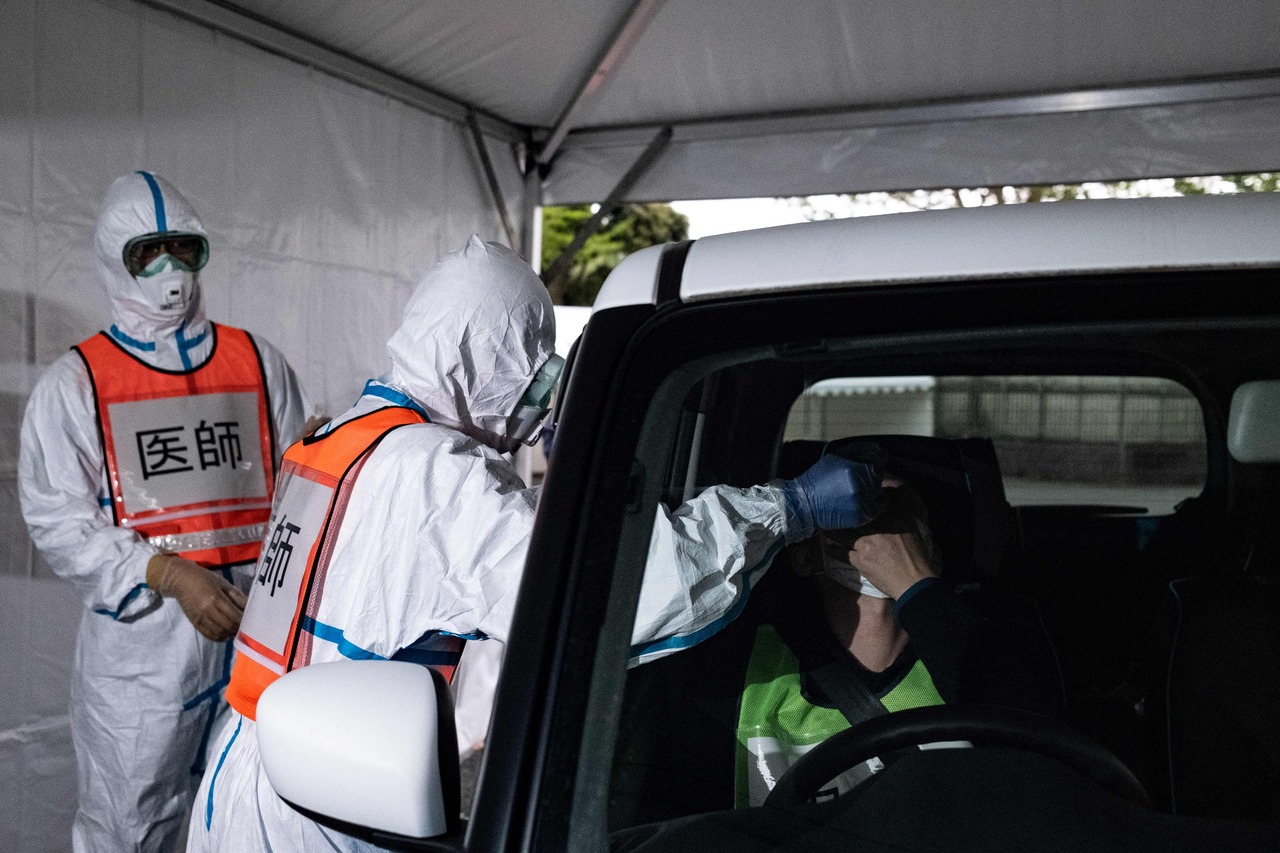COVID-19 SPECIAL
Japan's low test rates resulted in wider spread of coronavirus
Sign up now: Get insights on Asia's fast-moving developments

A demonstration of a drive-through swab test for the coronavirus in Fujisawa, Tokyo, on April 27, 2020.
PHOTO: AFP
Japan has been criticised for testing people only at a fraction of its capacity, a strategy that has proven ineffective amid growing community contagion with no clear links of transmission.
Still, there are complex reasons behind the initial reluctance to conduct more polymerase chain reaction (PCR) tests, said Japan Medical Association president Yoshitake Yokokura.
First, the testing capacity had been limited to only about 2,000 a day, a figure that has since risen to about 15,000. Prime Minister Shinzo Abe said on Tuesday that he wants capacity to be raised further to 20,000 cases a day.
But what complicated matters early on, when tests were limited, was the Diamond Princess cruise liner off the coast of Yokohama. There were 3,711 people on the ship manifest, of whom 712 later tested positive.
Second, only public healthcare facilities were approved as PCR testing centres, though private facilities like university hospitals, health laboratories and research centres have since been tapped.
Third, by the country's antiquated infectious diseases law, all Covid-19 patients must be warded in hospital regardless of the severity of their symptoms.
This has since been revised to allow those with mild or no symptoms to recover in hotels, where a doctor and a nurse is on permanent standby.
Medical experts have long warned of a collapse of Japan's healthcare system given a lack of beds and ventilators for patients and masks, face shields and personal protective equipment for healthcare workers.
Mr Abe this month apologised for the dire shortage owing to the "problem" of being heavily reliant on foreign production, particularly China.
To plug the gaps in equipment, Japan Inc has been mobilised to help alleviate shortages.
Carmakers Nissan and Mitsubishi Motors are making face shields, beverage giant Suntory and cosmetics maker Shiseido are making hand sanitisers and electronics giant Sony is making ventilators.
But above all was a lack of understanding of the threat. Preliminary guidelines asked people to stay home if they felt unwell and consult a doctor if they had a fever of 37.5 deg C or more for at least four days.
This time span was halved for the vulnerable, such as the elderly, pregnant women and children.
Dr Yokokura now advises those who suspect they may have contracted the coronavirus to promptly call the Covid-19 hotline for a referral - though doctors can still exercise discretion.
But this also means that not everyone who wants to be tested will be tested.
Despite the recent increase in PCR testing capacity nationwide, in some parts of worst-hit Tokyo, the waiting time to be tested could be up to a week.
Health Ministry data shows that between Feb 18 and Monday, a total of 250,554 tests were conducted in the country of 126 million. Some people - especially patients - were tested more than once.
More than 14,000 have tested positive as of yesterday.


